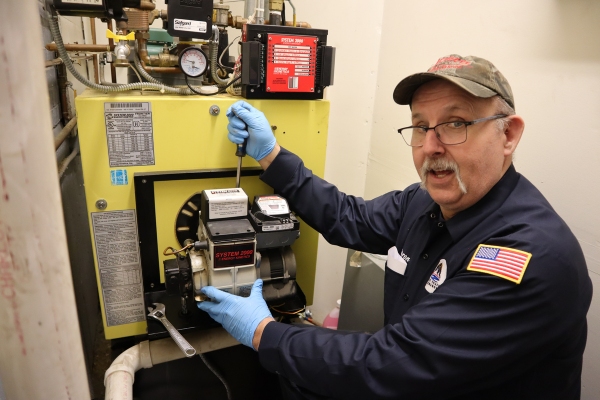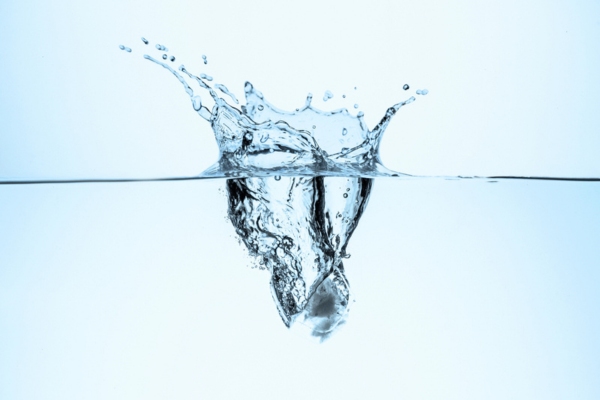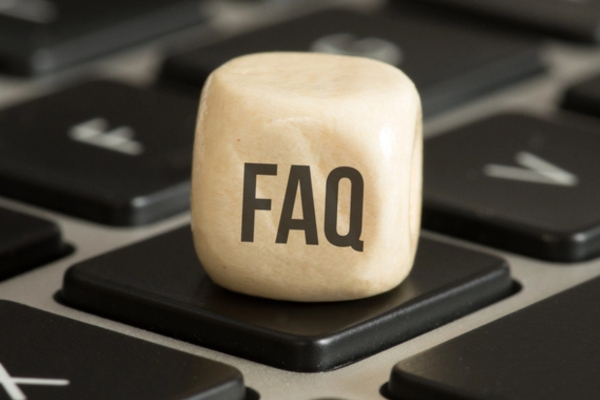Table of Contents
- Fundamentals of Boiler Functionality
- Impact of Water Quality on Boiler Efficiency
- Optimizing Boiler Efficiency with Water Treatment Solutions
- Ongoing Monitoring and Automated Controls for Boiler HVAC Systems
- Benefits of Maintaining Optimal Water Quality in Hot Water Boilers
- FAQs About Boiler Performance and Water Quality
- Conclusion
- Call Lake Region Energy for All Your HVAC Needs
Ensuring your boiler operates efficiently is crucial for residential homeowners, as it directly affects energy expenditures and environmental impact. Efficient boilers excel in converting fuel into heat, reducing both energy costs and carbon emissions. However, this performance is highly dependent on water quality. Contaminants such as minerals, gases, and organic compounds can lead to issues like scaling, foaming, and corrosion, which degrade boiler efficiency. For Lake Region Energy customers, it’s essential to grasp the importance of water quality in maintaining your boiler’s effectiveness.
Fundamentals of Boiler Functionality
Importance of Water in Boiler Operations

Water is essential in boiler systems, acting as the primary medium for heat transfer. This process distributes the energy generated from the combustion of fuel, which is used for heating or industrial purposes. In steam boilers, water reaches its boiling point and turns into steam, which is then utilized in various applications.
Looking for Professional Heating Services? Get in touch with Lake Region Energy for exceptional quality and comfort. Call today for instant support!
Essential Elements of a Boiler Water System
A boiler system is comprised of various critical components. The burner initiates combustion in the chamber by igniting the fuel and converting it into heat. This heat is subsequently conveyed to the water through the heat exchanger. Additionally, the system is equipped with controls and safety mechanisms to ensure secure and efficient operation. The flue stack also plays a vital role by expelling combustion by-products. Together, these components are crucial for maintaining the system’s efficiency and overall performance.
Impact of Water Quality on Boiler Efficiency

Common Contaminants in Boiler System Water
The water utilized in boiler systems may be laden with impurities that negatively impact boiler efficiency. These contaminants include:
- Minerals: Predominantly calcium and magnesium, typically found in hard water.
- Gases: Gases like oxygen and carbon dioxide can enter the system.
- Organic Compounds: Introduced from a variety of external sources.
- Suspended Solids: Originating from both internal and external origins.
Need Expert Heating Services? Choose Lake Region Energy for unmatched reliability and expertise. Contact us today for professional support!
Understanding Boiler Scale Buildup and Its Effects
Scale buildup is a significant problem in boiler systems, occurring when minerals such as calcium and magnesium precipitate from the water. This leads to:
- Scale Accumulation: Minerals settle and crystallize on the surfaces within the boiler.
- Impaired Heat Transfer: As scale acts as an insulating layer, it significantly reduces the boiler’s ability to transfer heat effectively.
- Risk of Tube Failures: Over time, the accumulation of scale can cause blockages and potential damage to the boiler tubes.
Hydronic Heating System: Corrosion Challenges & Its Consequences
Corrosion within boiler systems poses a substantial problem, originating from various sources like oxygen entry and pH imbalances in the water. This corrosion can degrade boiler components, compromising the system’s efficiency and safety. Furthermore, the issues associated with corrosion typically lead to diminished boiler efficiency, highlighting the critical need for swift and effective management of these concerns.
Boiler Issues with Foaming, Priming, and Carryover
Although less common, complications such as foaming, priming, and carryover arise from high levels of impurities in the boiler water, negatively impacting efficiency. These issues typically lead to compromised steam quality, reducing overall system efficiency. Moreover, foaming and carryover can damage downstream equipment, requiring additional maintenance and presenting operational challenges in managing the boiler system effectively.
Looking for Reliable Warmth This Winter? Rely on Lake Region Energy for all your heating requirements. Contact us today for expert service and tailored solutions!
Optimizing Boiler Efficiency with Water Treatment Solutions
Essential Pre-Treatment Techniques
Effective water treatment is indispensable to preserving boiler efficiency, with pre-treatment options forming a crucial aspect of this regimen. Key solutions include:
- Filtration Systems: These are engineered to filter out particulate matter and suspended solids, ensuring cleaner water enters the boiler.
- Softeners and Ion Exchange Units: Utilized to mitigate water hardness by getting rid of minerals like calcium and magnesium, which contribute to scale.
- Deaeration Devices and Oxygen Scavengers: These tools are crucial for removing dissolved gases, especially oxygen, to prevent corrosion.
- pH Adjusters and Alkalinity Builders: Applied to sustain appropriate pH and alkalinity levels, these additives help prevent both corrosion and scale buildup within the boiler system.
Internal Treatment Strategies for Boiler Systems
Internal treatment methods are crucial for enhancing protection within the boiler system, guarding against efficiency degradation and potential damage. These strategies include:
- Scale Inhibitors: Chemical additives that inhibit scale accumulation on internal boiler surfaces.
- Corrosion Inhibitors: Compounds designed to shield the boiler’s metallic surfaces from corrosive actions.
- Antifoaming Agents: Utilized to minimize foaming within the boiler, adversely affecting steam quality and operational efficiency.
- Dispersants: These agents assist in dispersing suspended solids, thus preventing the formation of harmful deposits.
Looking for Top-Quality Heating Professionals? Depend on Lake Region Energy for reliable heating services throughout the year. Contact us now!
Ongoing Monitoring and Automated Controls for Boiler HVAC Systems
Maintaining consistent oversight and control over water quality is critical for ensuring boiler systems’ long-term efficiency and safety. This involves:
- The Necessity of Routine Monitoring: Regular monitoring is critical to detecting and promptly addressing potential issues with water quality.
- Technological Innovations in Managing Boiler Water Quality: Cutting-edge technologies now allow for accurate and automated water quality control, significantly enhancing the management of boiler systems. These advancements are instrumental in sustaining ideal water conditions, thus boosting boilers’ overall efficiency and lifespan.
Benefits of Maintaining Optimal Water Quality in Hot Water Boilers

Maintaining high water quality in boiler systems offers numerous benefits, enhancing operational performance and safety.
Enhanced Heating Efficiency & Reduced Energy Costs
Quality water promotes optimal boiler efficiency, minimizing energy usage and reducing operational costs. By preventing problems such as scaling and corrosion, which hinder effective heat transfer, the system can perform at its best while avoiding unnecessary expenses.
Looking for Experienced Heating Specialists? Lake Region Energy delivers top-notch heating solutions tailored to your needs. Contact us today for exceptional service!
Prolonged HVAC Equipment Durability
Maintaining clean water minimizes the formation of damaging scale and prevents corrosion, significantly increasing the lifespan of boiler components. This results in fewer repairs and replacements, ensuring the system operates efficiently for a longer time.
Lower Heater Maintenance Expenses and Fewer Disruptions
Good water quality reduces the frequency of service needs and decreases the likelihood of unexpected breakdowns. This helps cut down on maintenance costs and limits operational downtimes, providing financial and practical benefits.
Improved Safety Measures
Effective water treatment and management play a vital role in boosting the safety of boiler operations. By preventing problems that could lead to structural damage or hazardous malfunctions, maintaining high water quality creates a secure environment for both homes and industrial facilities.
FAQs About Boiler Performance and Water Quality

How is Boiler Efficiency Defined?
Boiler efficiency refers to the percentage of energy from the fuel successfully converted into usable heat. This efficiency is usually represented as a percentage, reflecting the portion of the fuel’s total energy converted into heat.
How Do I Know if Water Quality is Impacting My Boiler’s Efficiency?
Signs that poor water quality may be affecting your boiler include diminished heating performance, higher fuel usage, and unusual sounds or irregular operation. These issues often point to problems such as scaling, corrosion, or other water-related complications within the system.
Is Tap Water Suitable for Use in Boilers?
While tap water can be used in boilers, it is not always the best choice due to impurities like minerals and chemicals. These contaminants can cause scaling and corrosion, negatively affecting the boiler’s efficiency and longevity.
Searching for Reliable Heating Services? Lake Region Energy provides exceptional solutions to keep you comfortable. Reach out today for unmatched service!
How Frequently Should Boiler Water Quality Be Tested?
Boiler water quality should be tested regularly, ideally at least once a year. Routine testing helps identify and resolve water-related issues early, ensuring the system operates efficiently and avoids potential damage.
What Happens If Boiler Water Quality Is Ignored Over Time?
Maintaining proper water quality in a boiler system can lead to significant long-term issues. These include reduced efficiency, higher repair and maintenance expenses, and a shortened boiler lifespan. Moreover, neglecting water quality increases the risk of safety hazards, such as structural leaks or system failures.
Conclusion
Water quality is critical in maintaining boiler efficiency and overall performance. Achieving optimal water conditions is essential for enhancing efficiency, extending the lifespan of boiler components, and ensuring safe operations. Implementing regular maintenance, continuous monitoring, and effective water treatment solutions are vital steps to protect boiler systems. Homeowners and facility managers can improve system reliability, reduce repair costs, and maximize economic and operational benefits by focusing on these practices.
Need Dependable Heating Solutions? Lake Region Energy ensures your home stays cozy with top-tier service. Reach out now for the comfort you can count on!
Call Lake Region Energy for All Your HVAC Needs
Lake Region Energy is your trusted partner for superior heating and cooling services in Maine and New Hampshire. Our professionally certified technicians specialize in HVAC tune-ups, repairs, installations, and replacements, ensuring your system operates at peak performance. Rely on our expertise for reliable, tailored solutions to meet all your HVAC requirements.
We offer competitive pricing while delivering unmatched comfort, improved energy efficiency, and cut down heating and cooling costs. Whether you need a quick repair or a complete system replacement, we’ll provide personalized recommendations within your budget, all with a satisfaction guarantee.
Contact Lake Region Energy today for a free, in-home consultation and discover the difference of exceptional service. Call today!
You can click here to contact us, or you can call us at (207) 839-5500 to find out more. We offer a full line of heating and cooling repairs, maintenance services, and installations. Click the link to view our service area.

Related Articles:
- AFUE Ratings Explained: What Homeowners Need To Know
- Essential Winter Maintenance Checklist for Homeowners
- Why Did My Furnace Stop Working: The Usual Components To Break Down
- Carbon Monoxide Safety: Essential Tips for a Safe Heating Season
- Avoid Heating System Failures With Proper Oil Burner Maintenance
